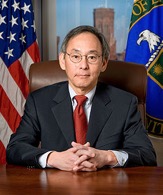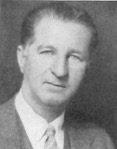Do the Telecom Policy Agencies Need a "Steven Chu"?

The above item appeared recently on Scott Harris’ Facebook page. Scott worked at FCC under Chairman Hundt as the original Chief, International Bureau. He was one of the finest public servants I have ever worked with, always focusing on the bottom line public interest issues. After leaving FCC he had his own law firm for many years, but now is back in public service as General Counsel of the Department of Energy.

Steven Chu is an American physicist and currently the 12th United States Secretary of Energy. Working at Bell Labs and Stanford University, Chu is known for his research in cooling and trapping of atoms with laser light, which won him the Nobel Prize in Physics in 1997. At the time of his appointment as Energy Secretary, he was a professor of physics and molecular and cellular biology at the University of California, Berkeley and the director of the Lawrence Berkeley National Laboratory, where his research was concerned primarily with the study of biological systems at the single molecule level.
As the interview in The Atlantic shows, he clearly has a hands on understanding of his agency’s technology. Which started me wondering, in the 3 telecom policy agencies, FCC, NTIA, State/CIP why don’t we have at least one person vaguely comparable to Steven Chu as a political appointee since telecom also has many highly technical aspects? I figure there are 5 presidential appointees at FCC, 2 at NTIA, and 1 at State/CIP. In addition there are at least a dozen “noncareer”/political senior appointees between the 3 agencies.
Comm. Sterling

It is not that the current Administration’s appointees are any worse than the past few decades. Indeed, one could argue that Chmn. Genachowski has more high tech business experience than any of his predecessors. But I don’t see any National Academy of Sciences/National Academy of Engineering members or even almost members among all 3 agencies’ twenty or so senior political appointees.
Technical policy is an integral party of telecom policy. Isn’t there room for at least 1 techie among all these political appointees? Secretary Chu shows that techies can be political appointees and succeed. Why limit this to energy policy?



![Validate my RSS feed [Valid RSS]](valid-rss-rogers.png)

